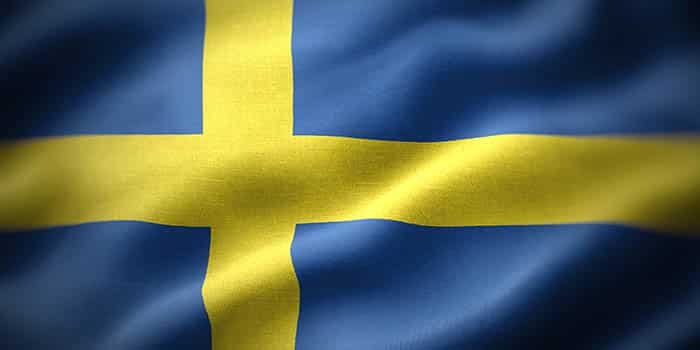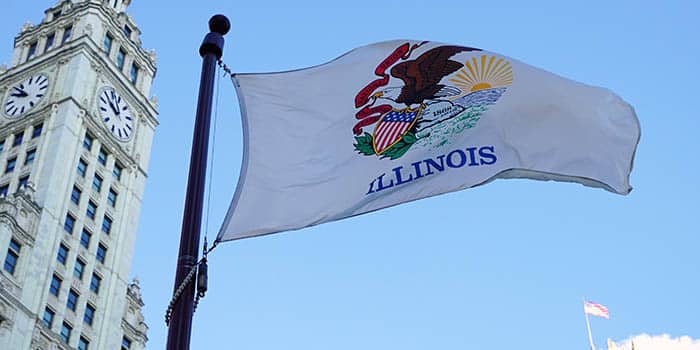- Casino
- By State
- Alabama
- Alaska
- Arizona
- Arkansas
- California
- Colorado
- Connecticut
- Delaware
- Georgia
- Florida
- Hawaii
- Idaho
- Illinois
- Indiana
- Iowa
- Kansas
- Kentucky
- Louisiana
- Maine
- Massachusetts
- Maryland
- Michigan
- Minnesota
- Mississippi
- Missouri
- Montana
- Nebraska
- Nevada
- New Hampshire
- New Jersey
- New Mexico
- New York
- North Carolina
- North Dakota
- Ohio
- Oklahoma
- Oregon
- Pennsylvania
- Rhode Island
- South Carolina
- South Dakota
- Tennessee
- Texas
- Utah
- Vermont
- Virginia
- Washington
- West Virginia
- Wisconsin
- Wyoming
- By State
- Slots
- Poker
- Sports
- Esports
Illinois Behind Schedule on Sports Betting, Indiana and Iowa Launch This Week

- Iowa and Indiana release sports betting operations on August 15
- Illinois Gaming Board still working on statures
- Betting in the Prairie State may be delayed until mid-2020
Illinois is still behind on the release date of sports betting in the state. Meanwhile, Iowa and Indiana are both opening for business on August 15.
Sports Betting in Midwest: Illinois, Indiana and Iowa
The Midwest has proven a contentious point for sports betting. With states doing their best to be the first to launch sportsbooks and skim players off the top, one place seems to still be far of the end-goal. Illinois bettors may not be able to place a wager – digitally or otherwise – in their home state on time for the football and basketball seasons, which are just around the corner.
As a result, Indiana and Iowa, which are both poised to launch their activities in the foreseeable future, now stand out all too invitingly to Illinois residents.
Why Isn’t Illinois Getting Sports Betting?
Illinois lawmakers have tried their best to be ready on time. A draft bill was passed and then signed into law in June by Gov. J.B. Pritzker, but that hasn’t helped the Illinois Gaming Board expedite the process in the slightest. With hundreds of tenets yet to be committed to ink, the Midwest is as lawless about sports betting as it has ever been.
This has caught lawmakers by surprise as well, who were hoping that residents would be able to start placing wagers as early as September, when the NFL season kicks off. Yet, the roll-out might be delayed and Illinois could even miss on The Super Bowl in February, 2020.
Illinois Gaming Board Head Marcus Fruchter has been the man to shoulder the burden. With so much happening, Mr. Fruchter has to navigate a complicated landscape:
“We’re creating an entire industry from scratch. You’ve got to take time to do that deliberately and not rush into something that either doesn’t work or has problems or any number of other concerns.”
While there are no deadlines to enact the signed law, the board has reams of issues to go through. For example, Illinois needs to familiarize itself with the Sports Wagering Act online betting restrictions as well as seek to include minorities, women and people with disabilities into the industry, as per active statures.
Mr. Fruchter’s assessment of the situation puts customer safety first. In his public appearances, the Gaming Board boss kept stressing the introduction of “adequate safeguards” and integrity. Another key area of interest is how licenses are allocated and taxes are collected. Here, Mr. Fruchter explained, transparency was of the utmost importance.
The Gaming Board’s Regular Duties Pile On
Illinois’ gaming watchdog is squeezed for resources. With not enough man power to process all casino license requests, let alone come up with an iron-clad binding regulatory draft, the state will need to re-think its deadlines. Presently, the Gaming Board needs to continue overseeing a number of activities, including:
- 10 casinos
- 32,000 video gaming terminals
- Six upcoming casino projects
- A racino
- License applications
Meanwhile, Iowa and Indiana have been able to pass most of their bills well ahead of schedule in May. Another inherent advantages of these states is the tax structure, which will see the tax pay much less than elsewhere in the United States and Illinois in particular.
Indiana
To obtain a license, a land-based operator will need to pay $75,000. A renewal fee will be up once every five years with $50,000 in net payment, and as to the tax, Indiana has decided on a 9.25% levy. Plus, online operators can open up by obtaining a $10,000 license and then only pay $5,000 for renewal every year.
Indiana sports betting details:
- Land-based fee: $75,000
- Renewal (applicable every 5 years): $50,000
- Online operators license fee: $10,000
- Renewable (applicable annually): $5,000
- Tax rate for all activities: 9.25%
Iowa
Iowa will even better rate. Launching on August 15, all sports betting operators will need to pay a $45,000 upfront fee that will be supplemented with $10,000 in annual renewals. Mobile betting is also part of the offer and the tax is the paltry 6.75%, making it a small Midwest oasis for gaming.
Iowa sports betting details:
- Land-based fee: $45,000
- Renewal (applicable annually): $10,000
- Online operators license fee: Included in land-based fee
- Tax rate for all activities: 9.25%
Illinois
Meanwhile, Illinois’ license fees rival those of Pennsylvania and can hit up to $10 million. Plus, all venues will have to pay 5% of the bets they generated a year prior to that to be allowed to continue under the new regulations. Professional sports teams can also open up their betting venues, which is a nice way to allow these organizations benefit from the sports betting bonanza, other than leagues futilely trying to secure integrity fees.
The Prairie State means well and Marcus Fruchter is the right fit for the job – building on an industry that will protect customers. However, other than miscalculating the deadlines, lawmakers may have also failed to asses how much money Illinois sports betting industry to be could generate.
Illinois’ sports betting figures:
- Land-based fee: Up to $10 million
- Online fee: $20 million
- Tax rate: 15% and 17% in Cook County
If squeezed too hard, operators may simply choose to walk away, leaving the market rather barren. Take for example FanDuel and DraftKings which are stuck in the state unless they partner with a local land-based property, a common prerequisite. Another downside is that with only three online betting licenses, the companies would need to pay $20 million to obtain one.
Admittedly, Illinois is the largest of the three states, but even with its nearly 13 million citizens, lawmakers may need to reconsider these rates in order to keep the state competitive. To add insult to injury, the tax rate will vary between 15% and 17%.
Interestingly, this hasn’t turn out every single player and Hawthorne Race Course and Rivers Casino have already confirmed that they would seek to foot the bill and become part of the active betting landscape in the Prairie State.
Reading the Financial Windfall
Illinois’ hopes about the potential return from the activity are high. For starters, license fees alone should generate $240 million, similar to what Pennsylvania did. Annual contributions should also reach $60 million, the states’ lawmakers estimate.
Unlike in other places, Illinois’ lawmakers were familiar with the exact concept how betting revenue is taxed as opposed to elsewhere where people voting for the bill thought that the taxable amount was the handle rather than the sportsbooks’ revenue leading to discrepancies in expectations and reality.
Related Topics:
Mike made his mark on the industry at a young age, consulting for companies that would later become regulators. As one of the lead editor of Gambling News, he dedicates his weekdays to this project, aiming to educate the masses on the latest developments in the gambling circuit. His expertise and passion for the industry make him an invaluable asset to our team.
Must Read
More Articles




